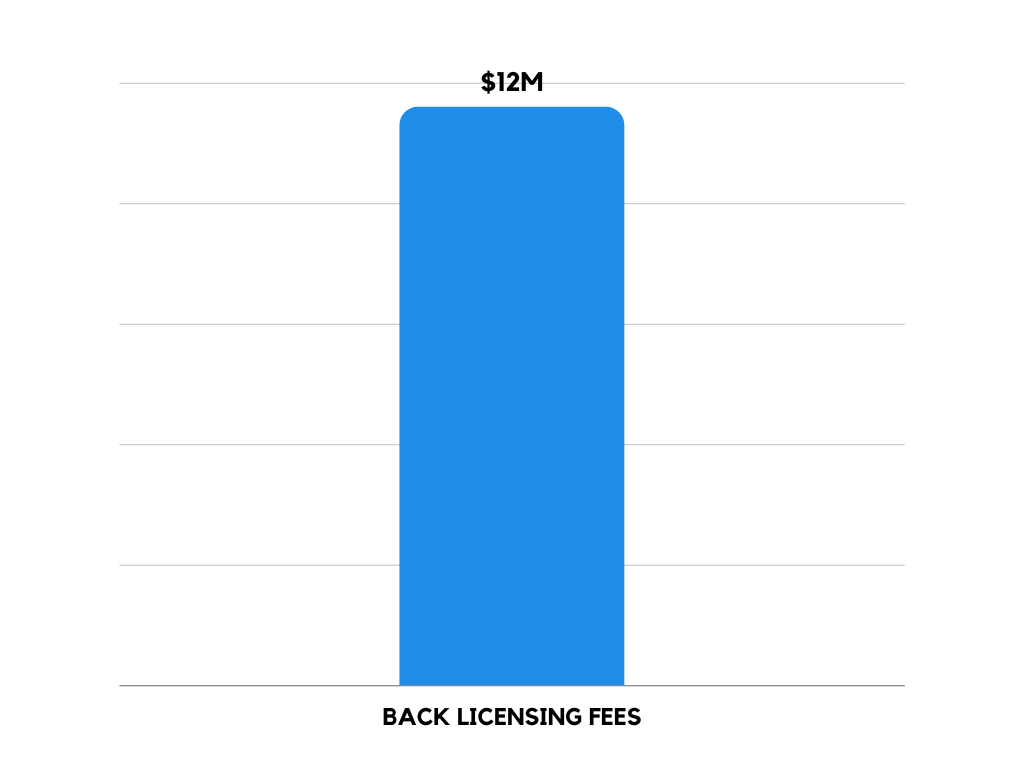Introduction
The Oracle Java “soft audit”
A defense contractor partners with the US military and friendly governments around the world to supply a range of high technology across the domains of land, sea, air, and space. Additionally, their international presence circles the globe with ten corporate locations in more than forty countries and a workforce in the tens of thousands.
In a growing trend, Oracle told the defense contractor their Oracle Java products were subject to a “soft audit.” Typically, it starts with the Oracle Java sales team making an inquiry of a company’s Oracle product “needs” and always seems to culminate in Oracle deciding that the target company owes Oracle a massive amount of money.
Read more about changes to Oracle Java licensing in recent years
- April 16, 2019 — Java SE is no longer free for all
- January 23, 2023 — From processor count to employee metric
The Oracle “soft audit” bullying strategy
Sales Stage — In the sales stage, Oracle sales staff attempt to be “helpful” by analyzing the target company’s systems for Oracle products. This is the information-gathering stage for Oracle’s next step.
Non-Compliance Stage — In the non-compliance stage, Oracle uses contractual and extra-contractual language to convince the target company that they owe a large amount due to unpaid licensing fees. This is a bargaining tactic. They also leverage the threat of a looming audit, whereas the sales team acts as the good guy by helping the customer avoid an “official audit.”
Settle — To avoid the hassle of an official Oracle audit, and Oracle pushes the target company to pay a portion of license fees “owed” and settle.
Challenges
High complexity across divisions, unclassified sites, and black sites
After trying to navigate dealing with Oracle independently, the defense contractor realized they needed assistance from a team specializing in Oracle contractual obligations and negotiation with Oracle. This realization brought them to contact LicenseFortress.
We realized that the circumstances of massive operational and systems complexity combined with military-level security concerns would make this engagement incredibly challenging.
Unfortunately, because the defense contractor had divisions working on vastly different systems combined with the highly classified nature of their work, the LicenseFortress team had to rely on data provided by the client instead of deploying our own Software Asset Management (SAM) tools into their systems. Despite this obstacle, we gained the information we needed from the client to combat Oracle’s false claims.
Solution
Determining price, eliminating back licensing fees, and securing fixed pricing
What’s the Right Price?
The crux of the issue for the defense contractor was that they didn’t know the right price for the Oracle products in use throughout their systems. LicenseFortress responded to this uncertainty by deploying our Pricing Advisor. From here, we determined precisely what contractual obligation the client had to pay Oracle going forward.
What About “Owing” License Fees from Previous Years?
LicenseFortress successfully argued for eliminating what Oracle claimed the client owed from previous years. This tactic was based on our knowledge of the Oracle contracts signed by the client. Additionally, our deep understanding of Oracle’s inclination to use other documentation to push for unwarranted payments. Furthermore, we could examine Oracle documentation of the client’s product use. Ultimately, we discovered that Oracle’s records were inaccurate in places.
Oracle Fees Moving Forward?
The defense contractor needs a negotiated settlement for Oracle Java license fees because it takes time for an operation of this size to move off Oracle. Ultimately, LicenseFortress was able to lean on Oracle to agree to a three-year fixed-fee licensing settlement. Furthermore, this eliminated the previously stated amount Oracle claimed.
Strategies to Streamline Oracle Compliance
As a part of our engagement with the defense contractor, LicenseFortress provided the client with a roadmap to help them streamline their systems. The result clarified the organization and any future software license compliance-related concerns.
The Result
Oracle pushed this customer to look for other vendors for their needs
The defense contractor has been able to put the harassing tactics of Oracle behind them. And now, it has a deal in place with Oracle that accomplishes two important things.
First, the settlement eliminated any past monies Oracle believed the defense contractor owed. This “past due owed” settlement on Oracle Java products alone saved the client $12 million.
Second, the settlement provides the defense contractor with a three-year locked-in license fee. This agreement aligns with their contractual obligations, not Oracle’s extra-contractual expectations.
Potentially the best news for the customer was they didn’t have to go through the headache of a full audit.
Today, the client is quietly removing Oracle products from their systems. By the end of their current contract with Oracle, they will fully migrate to other solution providers.
The Savings
Saved over $12 million in back licensing fees


